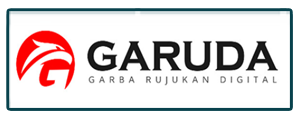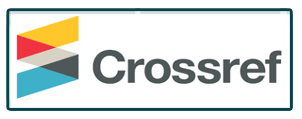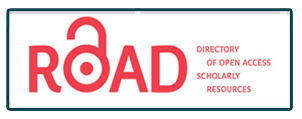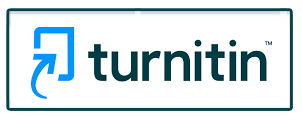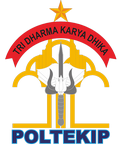Corporations, Human Rights, and PT Alpen Food Industry Scandal
Abstract
Sebagai salah satu aktor penting dalam perekonomian saat ini, korporasi global memiliki tanggung jawab besar atas hak asasi manusia pekerja mereka. Tanggung jawab ini dapat dijalankan dengan berbagai cara, mulai dari memastikan keselamatan pekerja dengan menyediakan lingkungan bekerja yang aman, menawarkan gaji dan jaminan kerja yang memadai, hingga menjalankan program corporate social responsibility atau CSR yang menunjang kesejahteraan para karyawan. Namun korporasi yang memiliki tujuan utama profit, dan pembahasan mengenai hubungan korporasi dengan hak asasi manusia yang baru mendapat perhatian belakangan ini, menyebabkan sering kali hak para pekerja dikesampingkan sehingga memicu konflik, baik antara perusahaan dan pekerja maupun dengan pihak lain dengan tujuan perlindungan karyawan. Tulisan ini akan membahas hubungan antara korporasi dengan hak asasi manusia, permasalahan yang dihadapi, dan mengambil salah satu contoh kasus yang sering kali menjadi sorotan di Indonesia ialah skandal PT Alpen Food Industry, bagian dari Aice Group Holdings, Pte.,Ltd. yang berulang kali terlibat masalah atas tanggung jawab terhadap para buruh.
As one of the most important actor in today’s economy, global corporations have a lot of responsibility for their worker’s human rights. This responsibility can be implemented in a lot of ways, from making sure of the worker’s safety by giving a safe working environment, offering enough wage and work assurance, to applying corporate social responsibility programs that support the workers’ well-being. But since the corporations’ main objective is profit, and the addition of how the topic of the relationship between corporations and human rights is something that hasn’t been talked about for a long time, workers’ rights are often being ignored and causing conflicts between the corporate and workers or other parties that wants to support the workers’ rights. This writing will talk about the relationship between corporations and human rights, problems with it, and taking an example of a case that often stands under the spotlight in Indonesia, the scandal of PT Alpen Food Industry which is part of Aice Group Holdings, Pte., Ltd. that went through the similar case of workers’ right ignorance multiple times.
References
Arsyad, A. (2020). Reputation of Educational Institutions in the Midst of the Thesis Jockey Phenomenon. Journal of Education Management, 35(2), 156-165. https://doi.org/10.17509/jmp.v35i2.8245
Braun, V., & Clarke, V. (2006). Using thematic analysis in psychology. Qualitative Research in Psychology, 3(2), 77-101. https://doi.org/10.1191/1478088706qp063oa
CNN Indonesia. (2024). Task Jockey Chaos, Service Seller Accounts Still Rampant on Social Media. https://www.cnnindonesia.com/nasional/20240725145539-20-1125469/gaduh-joki-tugas-akun-penjual-jasa-masih-marak-di-media-sosial
Denisova-Schmidt, E. (2016). The Global Challenge of Academic Integrity. International Higher Education, 87, 4-6. https://doi.org/10.6017/ihe.2016.87.9494
Fink, A. (2014). Conducting Research Literature Reviews: From the Internet to Paper. In SAGE Publications. https://doi.org/10.4135/9781483399744
Fitriani, A. (2019). Academic Support to Reduce Dependence on Thesis Jockey Services. Journal of Education and Culture, 28(3), 223-232. https://doi.org/10.24832/jpk.v28i3.7865
Hadi, M. (2017). The Effect of Thesis Jockeying on Academic Achievement. Journal of Education, 30(3), 203212. https://doi.org/10.2345/jp.v30i3.765
Hermawan, T. (2020). Factors Affecting Student Unethical Behavior. Journal of Education, 33(1), 99-110. https://doi.org/10.5678/jp.v33i1.789
Hidayati, D. (2019). Academic Pressure and the Use of Thesis Jockey Services. Journal of Higher Education, 39(3), 221-230. https://doi.org/10.6789/jpt.v39i3.890
Kartika, S. (2019). Unethical Behavior in Higher Education. Journal of Higher Education, 38(1), 134-145. https://doi.org/10.6789/jpt.v38i1.654
Kurniati, S. (2018). Academic Misconduct Cases at University Y. Journal of Education, 31(2), 112-121.
Kurniawan, H. (2020). Enforcement of Academic Sanctions and Supervision in Overcoming Thesis Jockey Services. Journal of Education Management, 37(3), 201-210. https://doi.org/10.17509/jmp.v37i3.9345
Kurniawan, R. (2018). Academic Pressure and Mental Health of College Students. Journal of Psychology, 27(2), 113-122. https://doi.org/10.1234/jp.v27i2.432
Lestari, K. (2022). The Impact of Thesis Jockeying on the Quality of Higher Education. Journal of Education and Culture, 35(1), 189-198. https://doi.org/10.3456/jpk.v35i1.876
Lestari, T. (2017). Academic Ethics and the Impact of Using Thesis Jockey Services. Journal of Character Education, 28(4), 98-107. https://doi.org/10.20961/jpk.v28i4.7654
Macaulay, A. D. (2015). Socioeconomic Status and Stress as Factors in Academic Dishonesty [Western Washington University]. https://cedar.wwu.edu/cgi/viewcontent.cgi?article=1430&context=wwuet
Miller, A. D., Murdock, T. B., & Grotewiel, M. M. (2017). Addressing Academic Dishonesty Among the Highest Achievers. Theory Into Practice, 56(2), 121-128. https://doi.org/10.1080/00405841.2017.1283574
Morris, E. J. (2018). Academic integrity matters: five considerations for addressing contract cheating. International Journal for Educational Integrity, 14(1), 15. https://doi.org/10.1007/s40979-018-0038-5
Mulyadi, H. (2019). Analysis of Academic Integrity Violations. Journal of Educational Psychology, 32(1), 145-154. https://doi.org/10.6789/jpp.v32i1.876
Nugraha, A. (2022). The Thesis Jockey Phenomenon at the University of Indonesia. Journal of Social and Education, 37(1), 54-63. https://doi.org/10.6789/jsp.v37i1.432
Nurcahyani, S. (2019). The Effect of Time Management Skills on the Decision to Use Thesis Jockey Services. Journal of Education Management, 36(1), 101-110. https://doi.org/10.17509/jmp.v36i1.7352
Prasetyo, A. (2017). Academic Stress and Student Behavior. Journal of Educational Psychology, 28(2), 145-154. https://doi.org/10.2345/jpp.v28i2.567
Pratiwi, E. (2018). Factors Affecting the Use of Thesis Jockey Services among Students. Journal of Education, 33(2), 120-130. https://doi.org/10.23887/jp.v33i2.6749
Rahardjo, M. (2018). The Impact of Using Thesis Jockey Services on the Quality of Education. Journal of Higher Education, 34(3), 145-155. https://doi.org/10.21107/jpt.v34i3.8907
Rahayu, S. (2018). The Use of Thesis Jockey Services at X University. Journal of Education, 32(1), 123-132. https://doi.org/10.1234/jp.v32i1.321
Rahim, A. (2021). Analysis of Student Unethical Behavior. Journal of Education and Culture, 31(3), 201-210. https://doi.org/10.3456/jpk.v31i3.876
Rahmawati, D. (2018). Motivation Behind the Use of Thesis Jockey Services. Journal of Educational Psychology, 45(2), 203-215. https://doi.org/10.3456/jpp.v31i3.910
Rini, S. (2017). Handling Academic Violation Cases. Journal of Education, 29(4), 223-232. https://doi.org/10.2345/jp.v29i4.432
Santoso, B. (2020). Factors of Academic Pressure on College Students. Journal of Education, 35(1), 23-32. https://doi.org/10.5678/jp.v35i1.567
Santoso, S., Negara, I. H. P., & Pratama, P. Y. S. (2023). University Academic Jockeys and the Law in Islam. An-Nur International Journal of Islamic Thought, 1(1), 28-36. https://doi.org/10.62032/aijit.v1i1.21
Snyder, H. (2019). Literature review as a research methodology: An overview and guidelines. Journal of Business Research, 104, 333-339. https://doi.org/10.1016/j.jbusres.2019.07.039
Suryani, A. (2018). Legal and Ethical Implications in the Use of Thesis Jockey Services. Journal of Education and Culture, 27(2), 167-176. https://doi.org/10.24832/jpk.v27i2.7652
Susanti, A. (2021). The Impact of Academic Violations on Students. Journal of Education and Culture, 34(2), 189-198. https://doi.org/10.3456/jpk.v34i2.543
Susilo, T. (2019). Student Perceptions of Thesis Jockey Services. Journal of Education. 34(1), 23-30. https://doi.org/10.1234/jp.v34i1.56
Syafitri, A. (2019). Student Motivation to Use Thesis Jockey Services. Journal of Educational Psychology. Journal of Educational Psychology, 31(1), 145-156. https://doi.org/10.6789/jpp.v31i1.543
Torraco, R. J. (2016). Writing Integrative Literature Reviews. Human Resource Development Review, 15(4), 404-428. https://doi.org/10.1177/1534484316671606
Vallespir Adillón, M., Espiñeira Bellón, E. M., Muñoz Cantero, J. M., & Comas Forgas, R. (2024). Academic integrity in pre-service teacher education: a review of the literature. Praxis Educativa, 19, 1-21. https://doi.org/10.5212/PraxEduc.v.19.23273.026
Wahyuni, T. (2020). Case Study of Academic Violations in Higher Education. Journal of Higher Education, 36(3), 201-210. https://doi.org/10.5678/jpt.v36i3.543
Wardana. (2017). Implications of Unethical Behavior in Education. Journal of Educational Psychology, 29(2), 221-230. https://doi.org/10.2345/jpp.v29i2.765
Wardhani, E. (2020). Thesis Jockeying Practices among Students. Journal of Higher Education, 45(2), 112-120. https://doi.org/10.5678/jpt.v45i2.789
Widodo, D., & Alizamar, A. (2019). RELATIONSHIP BETWEEN ACADEMIC ANXIETY AND CHEATING BEHAVIOR ON STUDENTS IN SMP N 4 PADANG. Journal of Neo Counseling, 1(4). https://doi.org/10.24036/00162kons2019
Wijaya, R. (2018). Unethical Behavior in the Academic Environment. Journal of Educational Ethics, 21(1), 45-54. https://doi.org/10.2345/jep.v21i1.111
Wijaya, R. (2019). Academic Integrity and Ethics in Higher Education. Journal of Educational Ethics, 23(1), 111-121. https://doi.org/10.24127/jep.v23i1.9087
Yulia, D. (2020). The Thesis Jockey Phenomenon in State Universities. Journal of Higher Education, 37(2), 167-176. https://doi.org/10.5678/jpt.v37i2.432



